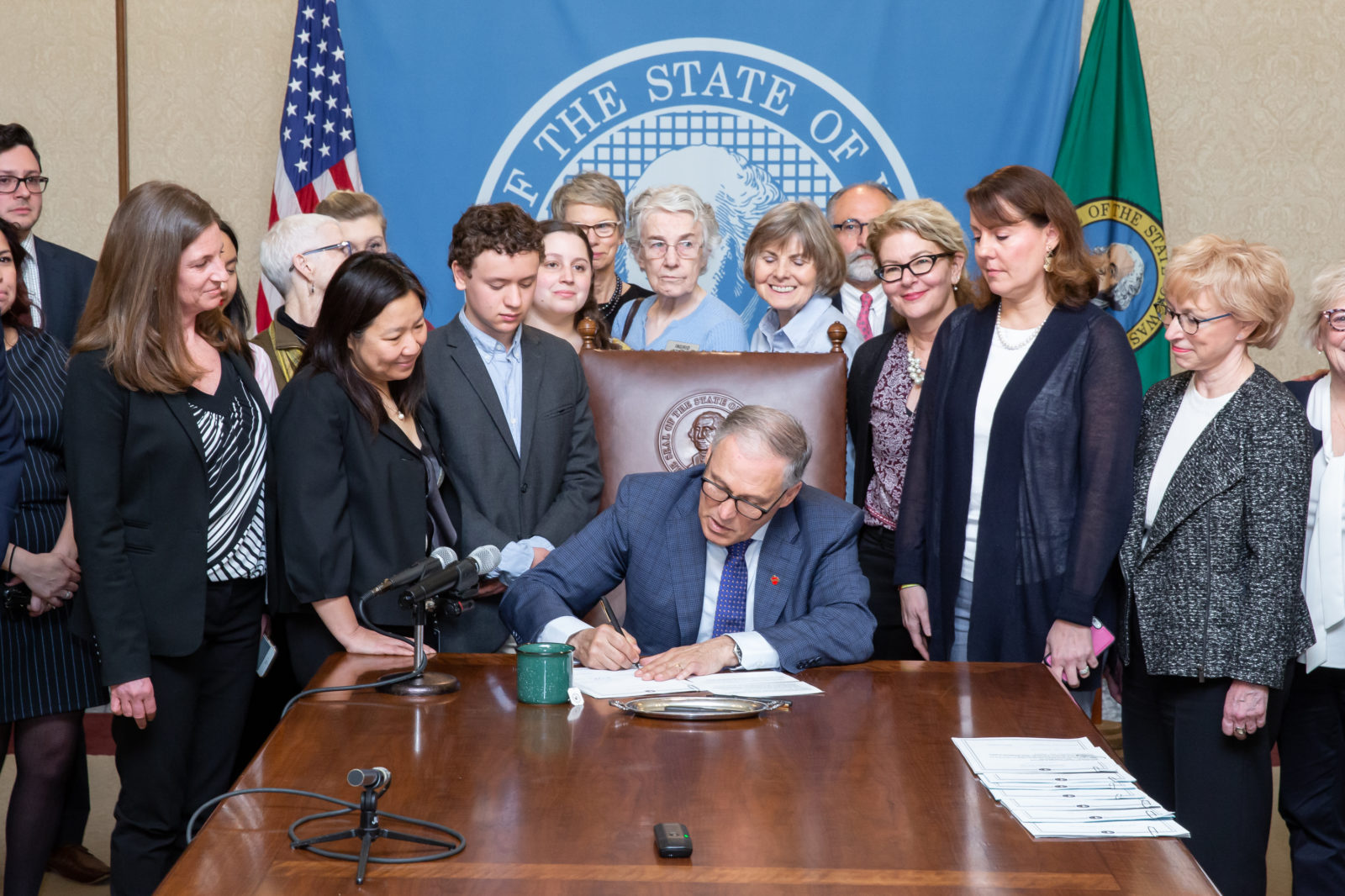Guest Post: the Holocaust Center for Humanity on Dismantling Hate through Education

The Holocaust Center for Humanity teaches the lessons of the Holocaust, inspiring students of all ages to confront bigotry and indifference, promote human dignity, and take action. In this guest post, Grants Manager and Communications Associate Sydney Dratel shares about the process of enacting change in education:
Founded in 1989, we are a museum and educational resource center that uses the Holocaust as a lens through which to engage and educate our community on issues of discrimination, tolerance, civic engagement, and the difference one person can make. From fall 2018 through spring 2019, the Holocaust Center worked with Washington State Senator Ann Rivers, the Jewish Federation of Greater Seattle, and the Office of the Superintendent of Public Instruction (OSPI) to research, draft, and ultimately pass into law bipartisan Holocaust education bill SB5612.
In 1992, three years after our organization’s founding, Holocaust survivors and Holocaust Center staff lobbied for a Washington State Holocaust education mandate. However, the bill that passed was a curriculum recommendation, which did not have a large enough impact on Holocaust education in Washington State. Three decades later, in 2018, Holocaust education was still an issue, and retired teacher Hannelore Tweed—who taught history for 30 years at Camas High School, supplemented with many Holocaust Center resources—approached Senator Ann Rivers about lobbying for stronger Holocaust education legislation in our state.
In October, I traveled to La Center along with our Baral Family Executive Director Dee Simon, a lobbyist, and an employee of the Jewish Federation of Greater Seattle to meet with Senator Ann Rivers about this legislation. In response to this successful meeting, we spent months researching, drafting, writing, and rewriting the language of the bill. We included the teaching of other genocides and crimes against humanity and the stipulation that the Holocaust Center for Humanity would work with OSPI to create guidelines and best practices for these topics. Also added was a clause stating that after two years, the Holocaust Center will make recommendations to the state on the future of Holocaust education in Washington.
After gathering support from dozens of teachers and organizations across the state, a group of Holocaust Center staff traveled to Olympia with Holocaust survivors, members of our Teacher Advisory Board, and a member of our Student Leadership Board to testify in front of the House and Senate Education committees. None of the teachers, students, or survivors had testified in support of legislative bills before, but their passion for this bill helped them brush aside their nerves, and each person gave compelling, personal, and powerful testimony.
We were thrilled to see that SB5612 was widely embraced by senators and representatives, passing unanimously through both education committees. Legislators’ votes were often accompanied by moving remarks by those who had family histories related to World War II and the Holocaust and therefore understood first-hand the importance of Holocaust education. This bill is a huge step towards ensuring that every student in our state has equal access to quality Holocaust education.
Studies show that Holocaust education effectively teaches students about antisemitism, bigotry, and the consequences of indifference. This legislation could not be more timely, as antisemitic incidents are higher than they’ve been in almost 20 years: 2017 showed a 60% increase in antisemitic events, a staggering 32% increase in hate crimes in Washington State, and K-12 schools have been reporting disturbing increases in hate-based incidents. At the Holocaust Center for Humanity, we use Holocaust education as a powerful tool to dismantle hate and inspire action, and we know that SB5612 will aid us in carrying out our mission and reaching even more students across Washington State.
